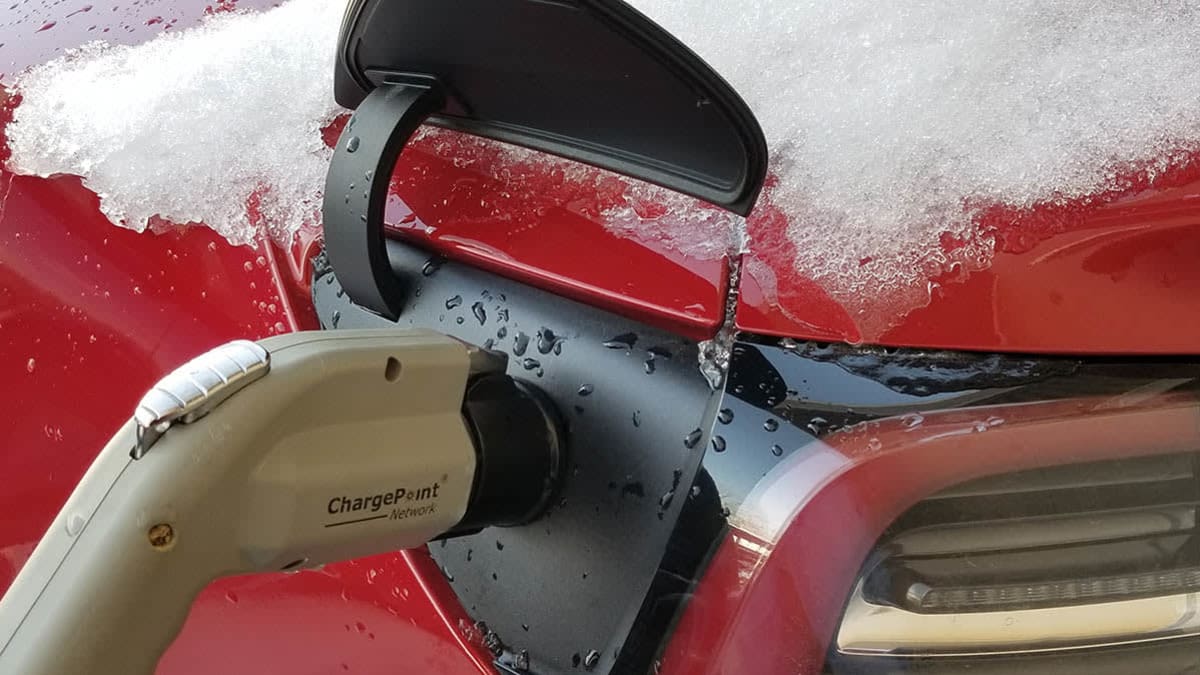Going to post a few of the negatives "I" have experienced.
Charging lines- I've only experienced this a handful of times in the 13,000 miles we've driven EV. I had to wait about 10 minutes. That was 4th of July weekend in ritzville Washington. It looks like it's pretty common in a lot of the west coast states.
Lack of DC fast charging infrastructure- This only is affected us on one trip that we had to change our route. Or we plan a trip that involves an overnight stay where we would need the energy. More and more hotels and airbnbs are putting in chargers or 240 volt plugs. The nice part about this is normally these have been free. Or built into the price of the room. I gladly would pay an extra $10 to have a full battery in the morning.
Range when towing- I use my vehicle more as a car not as a pickup. We do pull snowmobiles to the mountain in the winter with it a lot. I went and grabbed my buddy's camper since the last question about range. I averaged 1 mi per kilowatt pulling a 26 ft bumper hitch at 60 mph It was a sunny calm 80° day. We went on a 85 mi trip to get average.
Cold weather range- I park my vehicle in a heated garage, so the cold does not affect me as much as others. I lose about 10% at 0° f. You do not lose battery percentage in the cold. You lose the ability to get the energy out of the battery. Hence why they heat batteries. But if you are smart about preconditioning the battery, preheating the vehicle before you unplug you will help yourself in the end.
Charging lines- I've only experienced this a handful of times in the 13,000 miles we've driven EV. I had to wait about 10 minutes. That was 4th of July weekend in ritzville Washington. It looks like it's pretty common in a lot of the west coast states.
Lack of DC fast charging infrastructure- This only is affected us on one trip that we had to change our route. Or we plan a trip that involves an overnight stay where we would need the energy. More and more hotels and airbnbs are putting in chargers or 240 volt plugs. The nice part about this is normally these have been free. Or built into the price of the room. I gladly would pay an extra $10 to have a full battery in the morning.
Range when towing- I use my vehicle more as a car not as a pickup. We do pull snowmobiles to the mountain in the winter with it a lot. I went and grabbed my buddy's camper since the last question about range. I averaged 1 mi per kilowatt pulling a 26 ft bumper hitch at 60 mph It was a sunny calm 80° day. We went on a 85 mi trip to get average.
Cold weather range- I park my vehicle in a heated garage, so the cold does not affect me as much as others. I lose about 10% at 0° f. You do not lose battery percentage in the cold. You lose the ability to get the energy out of the battery. Hence why they heat batteries. But if you are smart about preconditioning the battery, preheating the vehicle before you unplug you will help yourself in the end.


